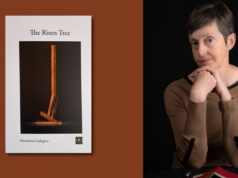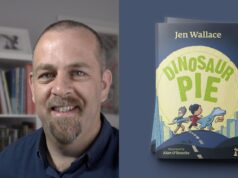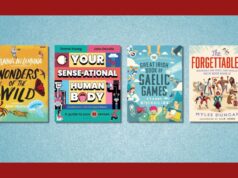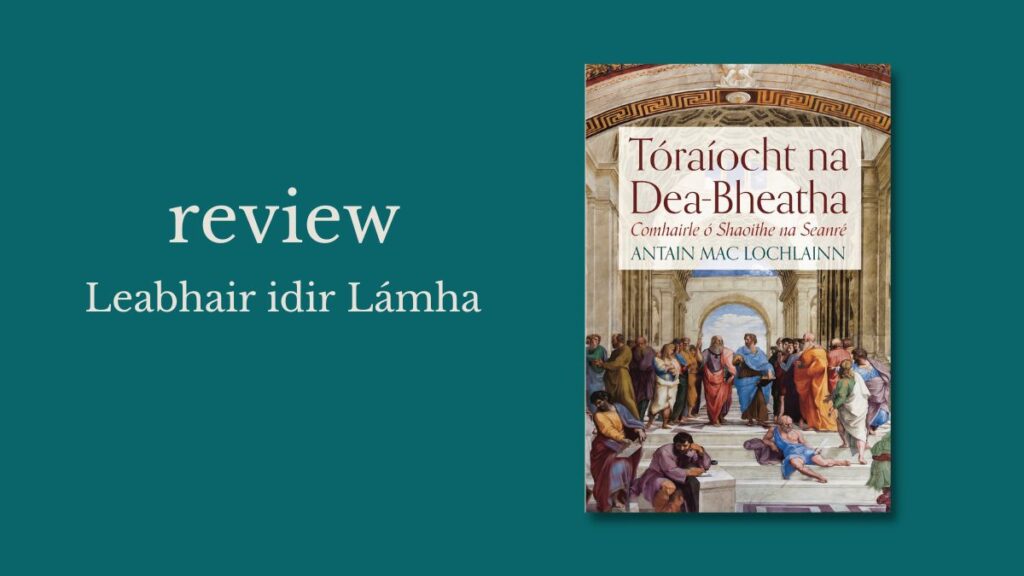
Tóraíocht na Dea-Bheatha, Comhairle ó Shaoithe na Seanré|Antain Mac Lochlainn|Leabhar Breac|pb, 230p|ISBN 978-1-913814-16-8|€16
‘Antain Mac Lochlainn‘s Tóraíocht na Dea-Bheatha, Comhairle ó Shaoithe na Seanré offers readers an opportunity to discover the philosophers of the ancient world and to reconsider what we might learn from them today.’
by Cathal Póirtéir
Like many readers, I suppose, I’m not much in the habit of reading philosophy or books about philosophers, so I approached Antain Mac Lochlainn‘s latest book with some trepidation.
The title is a fair enough summary of what it contains, the search for the well-lived life with advice from the great thinkers of the classical world. The attractive cover features the School of Athens fresco by Raphael in the Apostolic Palace of the Vatican; in it we can see many of the philosophers of the ancient Greek world including Aristotle, Plato, Zeno, Socrates and Epicurus.
They form part of the cast list in this survey and discussion of ancient philosophy and what we might learn from it. They are joined by fellow ancient philosophers Zeno, Seneca, Epictetus and Marcus Aurelius as well as a number of modern philosophers who have revisited the ancient writings with modern sensibilities.
Light touch
While the subject matter might make this sound like a heavy or difficult book that is not the case at all, due to the author’s light touch and regular flashes of humour.
He does an excellent job of explaining simply what each philosopher and school of philosophy were about, outlining their principles, giving us case studies, examining inherent problems and relating ancient thinking to our contemporary world.
Mac Lochlainn‘s wide frame of reference includes many names that might not crop up often in books about classical philosophy. He finds parallels to some philosophical thought in literary works, including lines from Nuala Ní Dhomhnaill, Seosamh Mac Grianna, Cathal Ó Searcaigh, Voltaire, Larkin, Wilde, Shakespeare, Montaigne, le Rochefoucauld and Dante. Cú Chulainn gets a look in too, as do John Cleese, Monty Python and even Star Trek’s Doctor Spock.
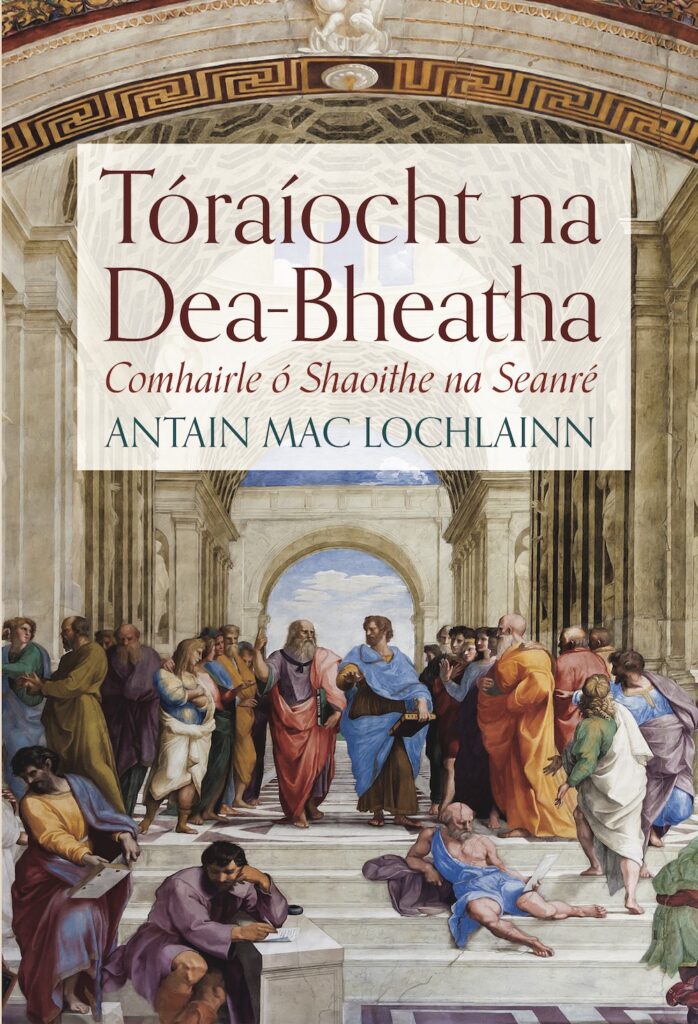
Contemporary thinkers
Mac Lochlainn also gives numerous examples of contemporary thinkers from a variety of disciplines, including psychotherapy, that have found some of the techniques and thinking of the ancients to be useful in their modern therapies and work practices.
For example, the author points out how some elements of the ancient philosophies are echoed in religious philosophies of Christianity, Buddhism and Islam. There are many references to the work of Neo-Stoics who try to adapt the ancient philosophy of that school to our contemporary world with varying degrees of success.
Mac Lochlainn is very helpful in leading us under the arches and through the gardens of the teachings of each major school and introduces us to their proponents and to those who took issue with them.
We meet Stoics, Epicureans, Cynics and others and discover what they had in common and what separated them. We find out what faults found in each other’s teaching, the life choices they entailed and how practical they were as codes for living.
Personal engagement
I often felt that the author was on his own quest to find out how the ancient teachings might help him towards a life well-lived.
That personal engagement, sometimes sceptical or humorous, was helpful in allowing me to feel that I was on a similar journey—rather than being preached at by a proponent of a particular philosophy. This allowed me have my own engagement with the philosophies I was being presented with.
This book opens up ancient philosophy to the reader in a way that I hadn’t expected but was grateful to find—but it’s not a book to be rushed through. It can take a while to digest all that Mac Lochlainn is explaining before moving on to the next chapter.
Irish translations
Mac Lochlainn’s Irish translations of the original writings make them readily accessible. There is, of course, some terminology that doesn’t appear in everyday conversational Irish but that’s to be expected.
Well-known as an accomplished and highly regarded translator, he does a good job of going back to the Greek origins of many words and explaining their nuances, pointing out where translation to other languages may not capture the original meaning, and offering us what he considers to be the most suitable term in Irish.
Worthwhile and entertaining
This isn’t light reading by any means but it is very accessible. The discussions are worthwhile and entertaining and the patient reader will benefit from the author’s own meditations on philosophies old and new.
Antain Mac Lochlainn‘s Tóraíocht na Dea-Bheatha, Comhairle ó Shaoithe na Seanré offers readers an opportunity to discover the philosophers of the ancient world and to reconsider what we might learn from them today.
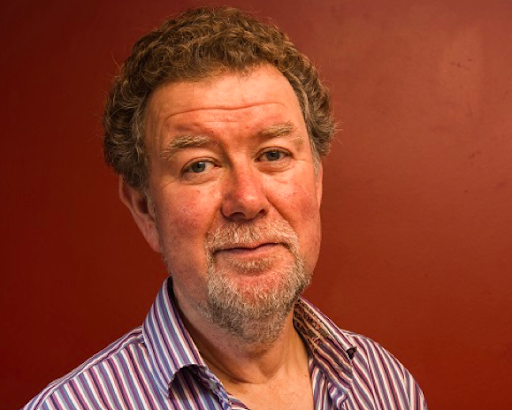
Cathal Póirtéir has specialised in researching, presenting and commissioning Irish interest material in various radio formats and in books, including history, literature and folklore in Irish and English, as well as current affairs and drama.









